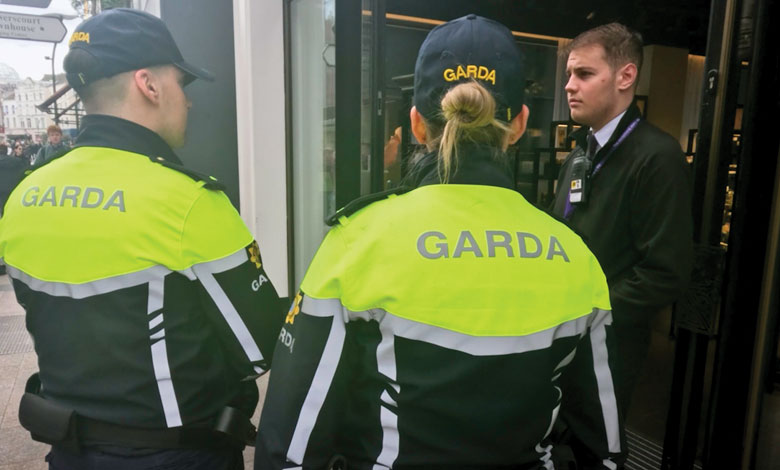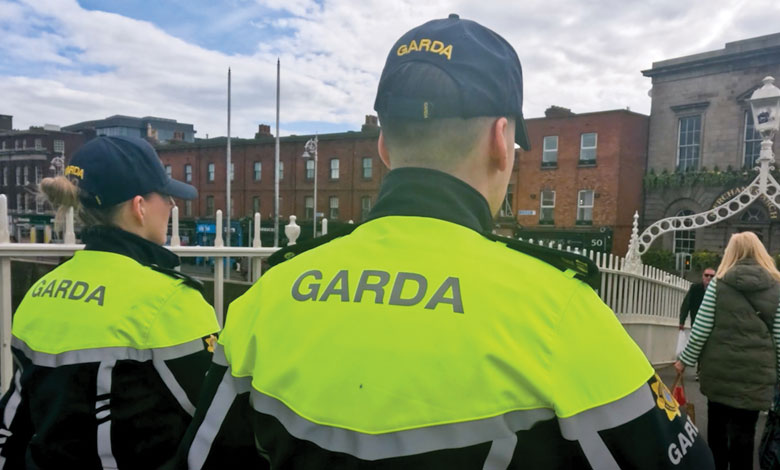Operation Táirge

In December 2023, An Garda Síochána launched Operation Táirge, supporting operational activity aimed at detecting and preventing organised retail crime.
The purpose and objectives of the Operation were aimed at addressing an international trend observed following the pandemic which saw the level of retail crime, but also aggravated retail crime rise.
Operation Táirge has served to disrupt such organised retail crime, and has led to a significant number of arrests and charges in its first year.
This included the arrest of 8,460 people and the issuance of 20,052 charges or summons between December 2023 and November 2024.
Significant arrests were made in June of this year further supporting the success of the Operation, with 47 individuals arrested and charged in connection with ongoing investigations under Operation Táirge on 18 June in the DMR North Division.
These included offences relating to incidents of robbery, burglary and theft in across the North Dublin area. A total of 76 charges were brought against those arrested in this phase of the investigation.
The initiative supports retailers, creates avenues for greater engagement between this sector and An Garda Síochána, and serves to identify and prosecute those involved in organised retail crime as well as recidivist offenders.
Operation Táirge has seen An Garda Síochána working with high risk retailers to enhance prevention, investigation and prosecution, and key to this is encouraging those affected to report such thefts and incidents.
An Garda Síochána is particularly conscious that retail crime has a significant impact on individuals, on the retailer, and on the wider community and we are here to support those affected.
Inspector Damien Boland of the Garda National Community Engagement Bureau acknowledges that a success of the operation has been the positive engagements forged from its roll-out.
“Retail Crime is not a victimless crime. This can clearly be seen from the reports of assaults and verbal abuse on retail staff. It effects staff safety, staff retention and staff recruitment. It is imperative that this crime is not tolerated in society and that perpetrators are reported and held accountable for their actions”.
He adds that “the engagement between An Garda Síochána and retailers has been greatly enhanced, resulting in improved intelligence and greater collaboration”.
There are a number of strands to how Operation Táirge is utilised to combat this type of crime, and there are specific areas of focus.
For instance, An Garda Síochána may use an intelligence-led approach to identify criminals engaging in retail crime. Gardaí also work with retailers to strengthen their security and other measures to help prevent them becoming victims of this criminality. An Garda Síochána also aims to identify and target the areas where organised retail crime black markets operate, and their leadership.
Primarily there is a focus on disrupting the most prolific groups in operation through the use of organised crime legislation and proceeds of crime legislation.

While awareness raising of the consequences of committing such offences also has an important role in deterring people from becoming involved in this crime.
Operation Táirge forms an integral part of An Garda Síochána’s Crime Prevention and Reduction Strategy supporting operational activity aimed at detecting and preventing Organised Retail Crime.
Organised retail crime is usually co-ordinated and well-organised by people who recruit others to commit theft from retailers.
It is a term used to describe situations where a number of individuals are acting together, targeting retailer outlets to steal significant quantities of goods. This generally results in the reselling of these goods on the black market.
It also encompasses refund fraud, which sees an offender attempting to benefit financially or materially from the theft by seeking a refund or exchange for the stolen goods.
The organised nature of this activity may not be immediately obvious. An Garda Síochána do rely on retailers to engage with them. It could be that an attempt to steal was prevented but information about that incident may link to other crime in the locality.
There are a number of other avenues being explored to develop upon the success of the Operation, according to Inspector Boland.
“While recent figures indicate the positive impact Operation Táirge has had since its introduction, there is now an opportunity to build on those positives and further enhance the collaboration between An Garda Síochána and the retail sector.
“For instance, the Garda National Crime Prevention Unit continue to lead out on the delivery of Operation Táirge. This includes holding biannual National Days of Action to ensure the operational objectives are met. This is in addition to local days of action which have already been planned to counter retail crime trends,” Inspector Boland said.
He added that An Garda Síochána remains dedicated to ensuring the safety of all communities countrywide and works very closely with community leaders and stakeholders, to address local issues.
Operation Táirge is led by the Organised Retail Crime Tasking and Co-ordination Group within An Garda Síochána and supports each Garda region to monitor and respond to emerging trends in their area.
W: www.garda.ie






